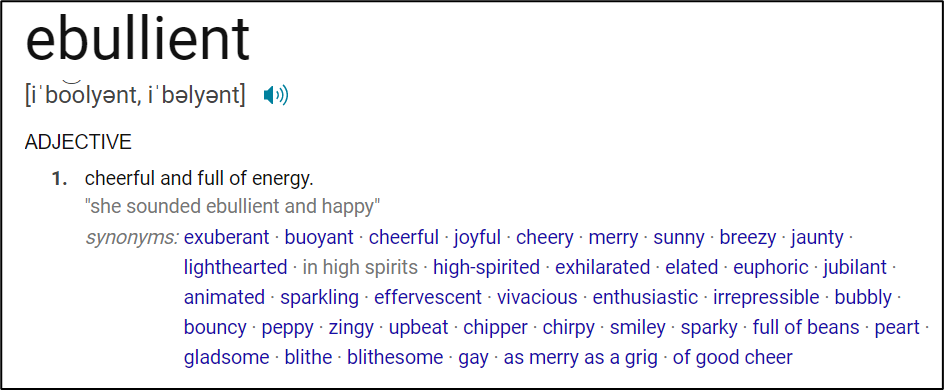
Can you tell the difference between ebullience and toxic positivity?
A long time ago (way back when we were still working in the office) a colleague described me as “too energetic and too enthusiastic” but the feedback I received was not in a positive way. At the time I felt slightly perturbed by the comment, it was directed with inference as though I needed to curb my natural behaviour.
At the time I thought how could anyone perceive this a negative trait? Should I have been worried about it? I will never compromise my enthusiasm or energy (I do know when to tone it down however, don’t get me wrong).
But it made me think.
What if my colleague thought that my natural demeanour was actually something different?
I wondered if I was being perceived as displaying traits of toxic positivity?
There is an interesting article published by the BBC called Toxic Positivity which goes into more detail on this behaviour.
‘Toxic positivity’ can be defined as the assumption that we should always have a positive outlook, even if we are in emotional or physical pain. It is the unrealistic idea that acting more positive and happy will make us feel better. But in reality, it's a way of shutting down our very real and human feelings and can often make us feel worse.
So how do you spot the difference between ebullience and toxic positivity?
I would say, look for consistency or recent changes in behaviour.
An ebullient person will generally be consistent, whereas a person who is suddenly displaying traits of being positivity and happiness could be compensating their emotional or physical pain with toxic positivity. This may not be the case at all though, they may have just won the lottery.
The simple answer is that being able to spot the difference is not that clear. The diagnosis is probably best left to the professionals.
What we can do however as responsible workers, is support our colleagues and co-workers with whatever it is that they are dealing with.
They may be naturally ebullient or they may naturally be quiet, reserved, or serious. It doesn’t matter, you know your colleagues, often working with them for as many hours a week as they are actually at home (even virtually). You’ll be aware of them and notice changes in behaviour and now, in the new hybrid environment that many of us will have to get used to working in, we need to support each other more than ever.
I’ve spoken about the power of positive relationships before and now more than ever we need to be aware of that.
Managers and colleagues in the workplace play an important role in the early intervention to prevent mental health decline. Most importantly they should be aware of any changes in mood, behaviour or relationships with colleagues as this can be an early sign of mental ill health.
Here’s my top five tips
- Be the person who your colleagues can talk to
- Be the person who reaches out to others
- Be aware, notice subtle changes
- Don’t be the spectator, act
- Be yourself
Most of all be yourself - it's not important if you are naturally ebullient, serious or anything else, it doesn’t matter, your colleagues know you are you are, as yourself.
Further reading
Note: The postings on this site are my own and do not necessarily represent IBM’s positions, strategies or opinions.
Lovely to experience your natural ebullience this week 😊
No-Nonsense Certified SAP Technical Consultant | RISE with SAP | SAP ALM | Release Manager | SAP Basis |
2yGreat insights once again and resonates with me somewhat. Thank you!